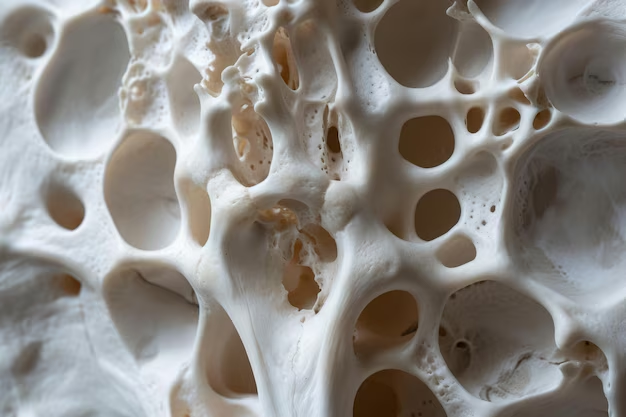Your Guide to Do Calcium Supplements Help Osteoporosis
What You Get:
Free Guide
Free, helpful information about Osteoporosis FAQ and related Do Calcium Supplements Help Osteoporosis topics.
Helpful Information
Get clear and easy-to-understand details about Do Calcium Supplements Help Osteoporosis topics and resources.
Personalized Offers
Answer a few optional questions to receive offers or information related to Osteoporosis FAQ. The survey is optional and not required to access your free guide.
Do Calcium Supplements Really Help with Osteoporosis?
Navigating the world of osteoporosis treatment can be as challenging as the condition itself. With the bone-thinning disease affecting millions worldwide, finding effective solutions is crucial. A common question among those diagnosed with osteoporosis is: "Will calcium supplements help me?" Let’s delve into the role calcium plays and explore other supportive measures you might consider.
The Role of Calcium in Bone Health
Calcium is essential for bone health; about 99% of the body’s calcium is stored in the bones and teeth. It provides the necessary support and structure. For those with osteoporosis, maintaining a steady calcium intake is crucial. Research has shown that an adequate calcium supply can slow down the rate of bone loss in older adults and may reduce the risk of fractures.
How Effective are Calcium Supplements?
While it’s important to get enough calcium, the effectiveness of calcium supplements for osteoporosis specifically is still a subject of research. Dietary intake should be prioritized, aiming to meet the recommended daily calcium intake through food sources like dairy products, leafy greens, and fortified foods.
For those unable to meet their needs through diet alone, calcium supplements can be helpful. However, it’s vital to consult healthcare professionals before starting any supplement regimen, as excess calcium can lead to other health issues, such as kidney stones. Thus, calcium supplements should be seen as a supporting player in the broader strategy against osteoporosis.
Beyond Calcium: A Comprehensive Approach
Vitamin D, magnesium, and other nutrients also play a significant role in bone health, aiding in the absorption and utilization of calcium. Weight-bearing exercises, such as walking or resistance training, are known to strengthen bones and improve balance, reducing the risk of falls and fractures. Additionally, medications that treat osteoporosis can often offer more direct benefits by slowing bone loss or increasing bone density.
Financial Considerations and Support
Managing osteoporosis effectively can become a financial burden for many. It’s not uncommon to feel the strain, especially when considering the costs of medications, supplements, and potential lifestyle adjustments.
However, financial relief options exist, and exploring them might bring some peace of mind:
Medicare and Medicaid: These programs can often help cover the costs associated with osteoporosis management, including prescription medications and bone density tests.
Healthcare Savings Accounts (HSAs): HSAs offer tax-advantaged options to pay for medical expenses, including supplements and co-pays.
Discount Programs and Manufacturer Coupons: Many pharmaceutical companies offer discounts or assistance programs for those struggling to pay for osteoporosis medications.
Community Health Centers: These often provide low-cost or sliding-scale services for essential care needs.
Expanding Your Support Network
Looking for ways to enhance your education or skills in managing your health can be empowering.
Online Courses and Workshops: These can offer education on proper dietary habits, exercise routines, or stress management techniques that support overall bone health.
Support Groups: Connecting with others facing similar challenges can provide emotional support and practical advice.
Grants for Continued Education: If osteoporosis has impacted your career or work potential, educational grants could assist with retraining or upskilling.
By addressing osteoporosis with a holistic management plan and being aware of the financial assistance options available, you can take proactive steps toward better bone health without feeling overwhelmed by costs.
Financial Aid and Support Options
- 💳 Medicare/Medicaid: Covers osteoporosis medications, tests.
- 🏦 HSAs: Tax savings for medical expenses.
- 📉 Pharma Discounts: Coupons and assistance for medications.
- 🏥 Community Centers: Low-cost health services.
- 🎓 Educational Grants: For career or health education.
Taking these steps can make navigating osteoporosis not only manageable but also empowering by opening doors to a broader range of healthcare and educational opportunities.
What You Get:
Free Osteoporosis FAQ Guide
Free, helpful information about Do Calcium Supplements Help Osteoporosis and related resources.

Helpful Information
Get clear, easy-to-understand details about Do Calcium Supplements Help Osteoporosis topics.

Optional Personalized Offers
Answer a few optional questions to see offers or information related to Osteoporosis FAQ. Participation is not required to get your free guide.


Discover More
- a Nurse Is Caring For a Client Who Has Osteoporosis.
- a Percutaneous Is Performed To Treat Osteoporosis Related Compression Fractures
- Can Alcohol Cause Osteoporosis
- Can I Do Pilates If I Have Osteoporosis
- Can I Reverse Osteoporosis
- Can Men Get Osteoporosis
- Can Osteoporosis Affect Teeth
- Can Osteoporosis Be Cured
- Can Osteoporosis Be Painful
- Can Osteoporosis Be Reversed
